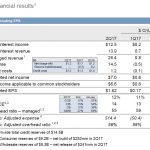It’s easy to worry about when to exercise your trades.
Especially when you’re new to options trading.
If you exit your position too early, you could miss out on huge profits. But if you wait too long and the stock ends up “in the money,” then there’s a chance that the options will be exercised, and you’ll be assigned the shares.
The key is knowing when to make your move.
And while normally I’m happy to take a double on my trades right away, there are times when it pays to wait all the way until expiration.
Let me show you the perfect example…
Waiting Until Expiration Could Deliver the Greatest Rewards

When you’re looking at the type of volatility that we’ve seen all year, the idea of holding a position right up until its expiration date may not seem like the best idea.
Many traders believe that in-the-money options have a greater risk of getting assigned at expiration, which means that they’ll need to cover the cost of the assigned shares. And this can drive them to exit their positions before expiration.
But we’re going examine how this really works using a bull call spread – or loophole trade – as our case study.
Remember, a bull call spread is a bullish strategy where you buy calls at a low strike price while simultaneously selling the same number of calls at a higher strike price. The calls all have the same expiration date.
In the case of an in-the-money bull call spread, the calls that you sold at a higher strike price would normally get exercised, and the stock would normally get assigned to your account. However, since you also bought calls to hedge against the ones you sold, these should be exercised at the same time and at the same strike price.
And the best part…
Since there’s no transaction cost for this trade, your account is credited the amount of the spread (per contract) minus the cost of the calls you bought when you opened the trade (or the debit).












Leave A Comment